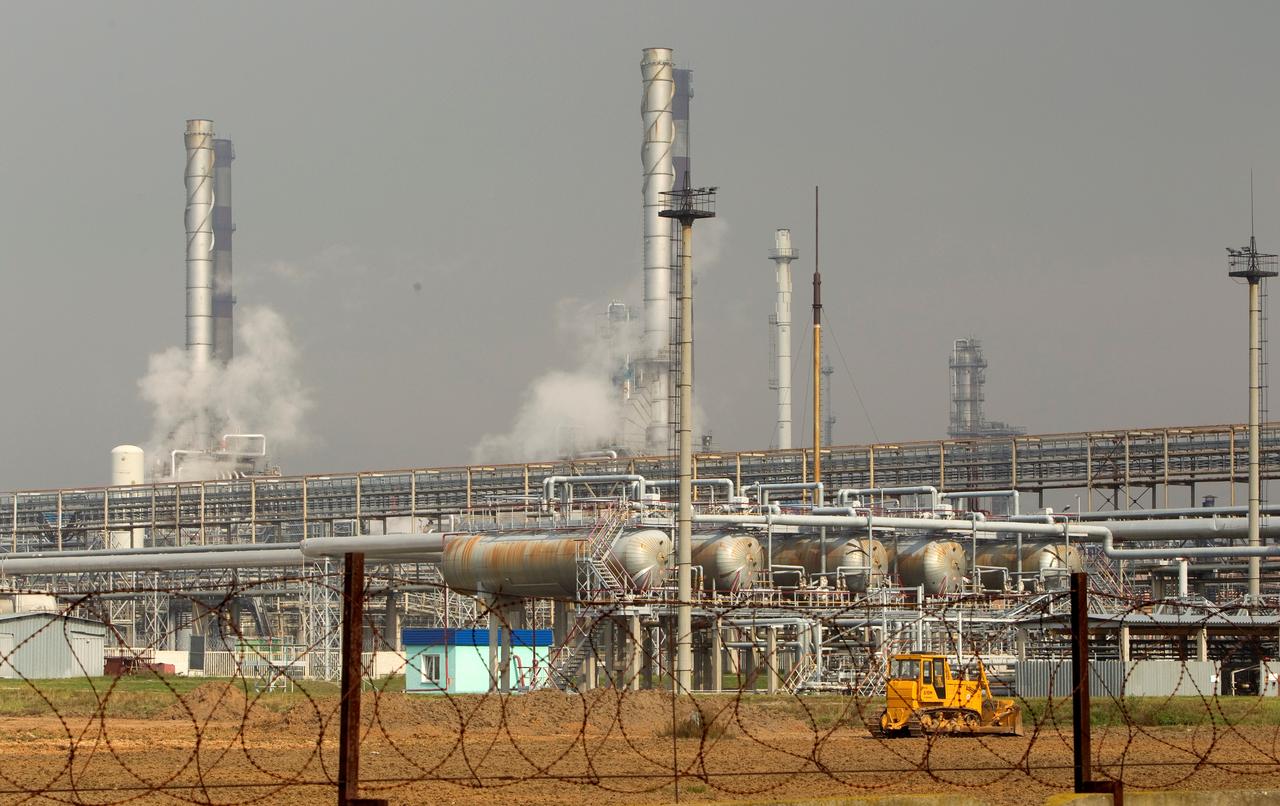Some 5 million tonnes of oil were contaminated in April with organic chloride and the dirty crude is now stuck in pipelines in Belarus and further West – in Poland, Germany, Ukraine, Slovakia, Hungary and the Czech Republic.
The sources said it could take months to fully resolve the crisis.
The crude is blocking the 1 million barrels-per-day Druzhba pipeline, shut since late April, and the evacuation of dirty barrels is complicated by the fact that no firm wants to pay for or refine them as organic chloride can damage refining equipment.
Four industry sources familiar with the latest Russian plan told Reuters Moscow would reverse the Druzhba pipeline and pump back around 1 million tonnes of contaminated oil from Belarus, thus cleaning up the link all the way through to Belarus’s border with Poland.
Another 1 million tonnes stuck in Poland and Germany though, will be left there to be dealt with by those countries, the sources said.
“The Russians are open to agreeing to take back the polluted oil from the Belarus section which has not come to Poland yet, but there is no agreement on compensation,” one industry source said.
The source attended a meeting in Warsaw on Thursday between Russian, Belarussian and European companies to discuss how to resume oil exports via Druzhba, the loss of which is costing Russia $80 million per day.
Three other people present at the Warsaw talks or briefed on what was discussed also said the plan was for Russia to take back the oil from the Belarus section.
“This is a bit under 1 million tonnes. They plan to take it back to Russia,” one of four sources said.
The pipeline supplies Poland and Germany via its northern leg and goes to Ukraine, Hungary, Slovakia and the Czech Republic in the south. The routes split at the Mozyr refinery in Belarus.
ROAD MAP
On Friday, Russia and Belarus signed a protocol agreeing to clean the pipelines by pumping back the oil to Russia but the protocol gave no specific volume to be pumped.
Russia has not yet determined the amount it will pay in compensation, Economy Minister Maxim Oreshkin told reporters, adding Transneft had the resources to deal with the issue.
Russia’s energy ministry and Transneft, the Russian state pipeline operator, did not reply to requests for comment.
Belarus state energy company Belneftekhim, which manages the country’s two refineries, declined to comment. Polish oil refiners PKN Orlen and Lotos also didn’t respond to a request for comment.
Polish pipeline operator PERN said on Friday it had dealt with over 30% of oil contamination in its system but it may take several months to completely clean the network.
Germany’s economy ministry and oil industry association said on Friday that ongoing Druzhba problems did not pose a threat to the security of oil product supply and that there were no plans to release oil from strategic stocks.
It remained unclear where Russia is planning to send the contaminated crude after pumping it back, the four sources said. It previously sent contaminated oil via the Baltic port of Ust-Luga via a pipeline, while a small volume was sent by rail to the Black Sea port of Novorossiisk where it got mixed with clean oil.
Russia is also exporting oil via other ports in the Baltics, as well as in the south and east of the country. These supplies were not affected by the contamination.
So far, Russia has managed to remove around 2 million tonnes, using rail, storage tanks and ships, restoring, at least partially, clean flows to the Ust-Luga port and to Slovakia.



